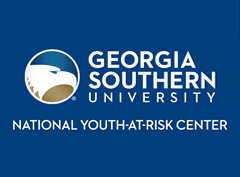Making Math Words Sticky- a Visual, Whole-Brain Approach to Learning Key Math Terms and Concepts
Location
Rural Strand - Bowie C
Focused Area
Youth-At-Risk in Rural Settings
Relevance to Focused Area
not avaliable
Primary Strand
Academic Achievement & School Leadership
Relevance to Primary Strand
not avaliable
Brief Program Description
Math is about more than calculations, procedures and rules. For many students, math is a new language. This session outlines how to build visual literacy in math instruction. Learn to tap into the power of imagery, curiosity, communication and collaboration to support students as they master the language of mathematics. Discover specific steps teachers can take to ensure students; think creatively and visually about math terms, discuss/ debate math concepts and develop clear, concise definitions for key math vocabulary. This right-brained approach is student-centered, interactive and supports Ells and diverse learners. It dramatically increases student opportunities for listening, speaking, reading and writing in mathematics. Let’s get students thinking, visualizing and talking about math and making new connections!
Summary
not avaliable
Evidence
not avaliable
Format
Individual Presentation
Biographical Sketch
not avaliable
Start Date
10-24-2016 8:15 AM
End Date
10-24-2016 9:45 AM
Recommended Citation
Billingsley, Joanne M., "Making Math Words Sticky- a Visual, Whole-Brain Approach to Learning Key Math Terms and Concepts" (2016). National Youth-At-Risk Conference, West (2015-2017). 3.
https://digitalcommons.georgiasouthern.edu/nyar_vegas/2016/rural/3
Making Math Words Sticky- a Visual, Whole-Brain Approach to Learning Key Math Terms and Concepts
Rural Strand - Bowie C
Math is about more than calculations, procedures and rules. For many students, math is a new language. This session outlines how to build visual literacy in math instruction. Learn to tap into the power of imagery, curiosity, communication and collaboration to support students as they master the language of mathematics. Discover specific steps teachers can take to ensure students; think creatively and visually about math terms, discuss/ debate math concepts and develop clear, concise definitions for key math vocabulary. This right-brained approach is student-centered, interactive and supports Ells and diverse learners. It dramatically increases student opportunities for listening, speaking, reading and writing in mathematics. Let’s get students thinking, visualizing and talking about math and making new connections!
